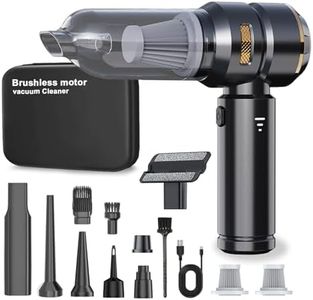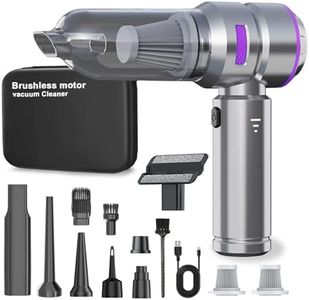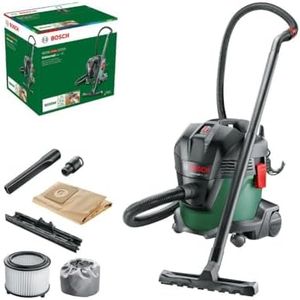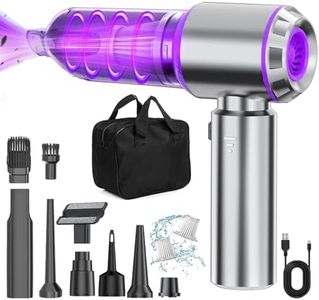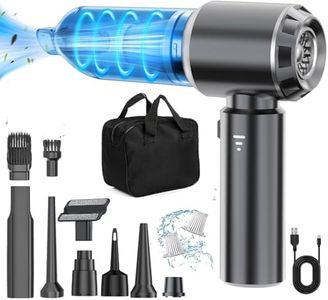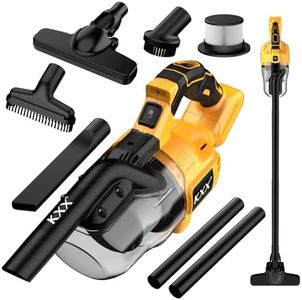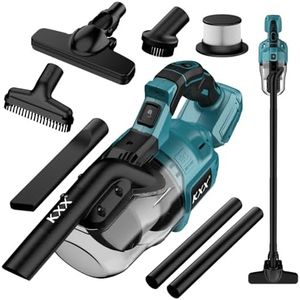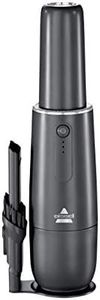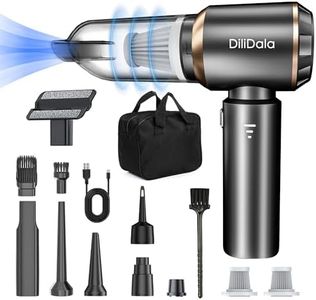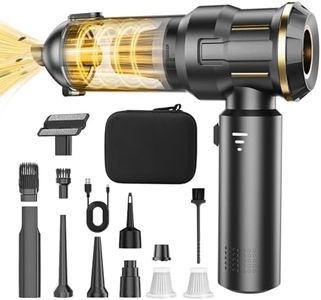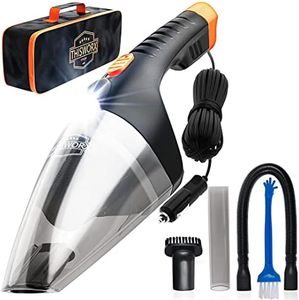We Use CookiesWe use cookies to enhance the security, performance,
functionality and for analytical and promotional activities. By continuing to browse this site you
are agreeing to our privacy policy
10 Best Car Vacuum Cleaners
From leading brands and best sellers available on the web.By clicking on a link to a third party's website, log data is shared with that third party.
Buying Guide for the Best Car Vacuum Cleaners
When buying a car vacuum cleaner, it’s important to focus on your everyday needs and the type of messes you usually encounter. Car vacuums are designed to handle dirt, crumbs, pet hair, and other small debris that regularly gather in vehicles. Think about who uses your car, how often you clean it, and which areas are hardest to reach. By understanding the features that impact cleaning performance, portability, and convenience, you can choose a vacuum that will keep your car tidy with minimal hassle.Suction PowerSuction power reflects how well the vacuum can pick up debris, especially from carpets and between seats. It is usually measured in watts, air watts, or simply compared as 'strong,' 'moderate,' or 'light.' High suction is important for stubborn dirt and pet hair but often makes the vacuum bigger or heavier. For light cleaning and maintaining mostly clean cars, a lighter suction might be enough, while deeper, more frequent cleans require stronger suction. Think about whether your car interior tends to get heavily soiled or just needs occasional touch-ups.
Power SourceCar vacuums can be powered by your car’s 12V socket, regular wall outlets, or internal rechargeable batteries. Plug-in models usually offer more consistent power for longer sessions but you’ll need a nearby socket or extension cord. Battery-powered models are more portable and convenient for quick cleanups but may offer limited runtime. Choose a power source that fits how and where you plan to clean—whether it's mostly at home, at parking lots, or on-the-go.
Size and PortabilitySize and portability affect how easily you can handle and store the vacuum. Compact models are lighter and fit into tight spaces, making them great for smaller cars or quick cleanups. Larger vacuums might be more powerful or have bigger dust containers, which can be preferable for bigger vehicles or if you clean infrequently but need to tackle large messes. Consider your car size, storage space, and how much effort you want to put into carrying and moving your vacuum.
Attachments and AccessoriesAttachments like crevice tools, brushes, and extension hoses help clean different areas, from narrow gaps between seats to wide carpeted floors. The value of each accessory depends on your car’s interior. If you often struggle with crumbs in cup holders or pet hair on upholstery, look for models with specialized brushes or flexible hoses. Tailor your selection to the unique challenges in your car to get the best results.
Dust CapacityDust capacity refers to how much dirt the vacuum can hold before you need to empty it. Smaller, handheld models usually have a smaller dust cup and require more frequent emptying, which may be fine for tidy cars or shorter cleaning sessions. If you have a large car or clean up big messes, a larger dust bin will make the job easier with fewer interruptions. Match the capacity to your regular cleaning routine and vehicle size.
Filtration SystemThe filtration system determines how well the vacuum traps dust and allergens. Basic filters catch large particles, while advanced or HEPA filters can capture finer dust and allergens, which is important for allergy sufferers. If air quality is a concern or you have allergies, look for vacuums with finer filtration. Otherwise, standard filtration usually works for casual use.
Ease of Cleaning and MaintenanceVacuum cleaners need regular emptying and filter cleaning. Some models have washable parts or easy-to-remove dust cups, making maintenance quicker and less messy. If you prefer less hassle, opt for models designed for easy cleaning and simple filter changes to keep your vacuum running at its best.
